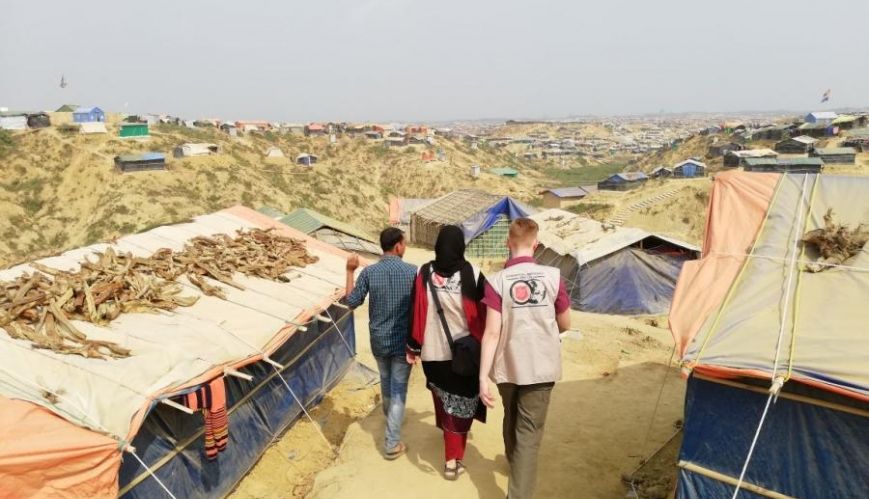Rejecting xenophobic rhetoric on refugees

Rejecting xenophobic rhetoric on refugees
15 June 2020
The Salvation Army’s International Positional Statement on refugees says that “God’s hospitable loving concern for the stranger and foreigner is evident in Scripture.”
Taking a Stand - Exploring The Salvation Army's International Positional Statements
Prominent in the definition of the term ‘refugee’ is the word ‘fear’:
“Any person who, ... owing to a well-founded fear of being persecuted for reasons of race, religion, nationality, membership of a particular social group or political opinion, is outside the country of his nationality and is unable or, owing to such fear, is unwilling to avail himself of the protection of that country.” – 1951 United Nations Convention Relating to the Status of Refugees, The UN Refugee Agency (unhcr.org/uk/1951-refugee-convention).
We have read and heard of flimsy boats with Syrian refugees crossing the Mediterranean Sea, Rohingya refugees crowding into camps in Bangladesh, people in their hundreds of thousands leaving South Sudan, Somalia and Afghanistan for large refugee camps in Kenya, Ethiopia and Pakistan. The risks some people take to get to a safe haven, and the conditions they face when they get there, can give only some indication of the gravity of the fear that drove them to flee.
At the same time, fear can also describe a common emotion of some people in countries hosting refugees and asylum seekers. Many carry a genuine fear that refugees will compromise the safety or wellbeing of their families, communities or themselves.
This kind of fear has recently come to the forefront in movements and political parties all over Europe building on anti-refugee rhetoric, and can also be traced in the discussions about setting up internment camps for refugees off the coast of Australia, or in the debate about the so-called ‘travel ban’ to the United States – among other examples.
Awareness is one place to start – informing ourselves, and informing others. In this process, we need to reject xenophobic rhetoric, and challenge politicians and others who choose to offer simplified solutions, rather than help us comprehend complex reality and dilemmas.
REFUGEES AND ASYLUM SEEKERS – SALVATION ARMY STATEMENT OF POSITION
The Salvation Army is gravely concerned for the needs of the millions of people who are refugees and asylum seekers. People are fleeing their homes and countries because of a well-founded fear of persecution. Many of these people have experienced significant grief and trauma, which have potential long-term consequences for their health and wellbeing.
The Salvation Army recognises that the ability to seek asylum is a basic human right, with all people having the right to life, liberty and security of person. The Salvation Army supports international efforts to eliminate persecution and displacement through the promotion of peace, tolerance, understanding and respect for human life and dignity.
God’s hospitable loving concern for the stranger and foreigner is evident in Scripture and, therefore, The Salvation Army contends that individuals and governments should act compassionately and humanely towards persons seeking asylum.
The Salvation Army condemns the actions of people smugglers, human traffickers and others who would seek to gain from the plight of refugees and asylum seekers. The Salvation Army recognises the responsibilities of sovereign nations to control their borders but believes there is also a duty to care for refugees and asylum seekers. Therefore, nations working together to address the dire needs of asylum seekers is critical.
The Salvation Army holds that both asylum seekers and refugees should be offered assistance to settle and become contributing members of society as quickly as possible.
Download the complete International Positional Statements atsalvationarmy.org/isjc/ips